Linda Burney didn’t rule out legislating priorities for the Indigenous voice to parliament
Linda Burney hasn’t ruled out legislating the government’s voice priorities of health, education, jobs and housing, which received backing from Indigenous leaders.
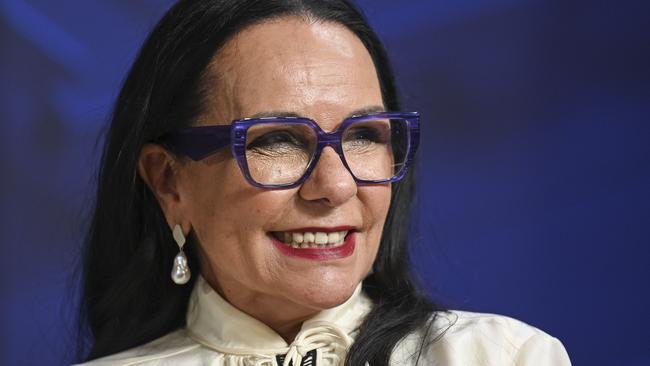
Linda Burney has left open the possibility of legislating the four priority areas the government wants the voice to focus on, as Peter Dutton accuses the Indigenous Australians Minister of “pretending” the advisory body’s scope is restricted to health, education, housing and jobs.
Constitutional law experts said the voice would be able to make representations on other areas affecting Aboriginal and Torres Strait Islander people if it wished, as guaranteed by the Constitution, but the government was able to indicate what it believed would be its top-order issues.
In a major address to the National Press Club on Wednesday, designed to reset the government’s narrative on the Indigenous voice to parliament amid increasing requests for more detail, Ms Burney said health, education, housing and jobs were fundamental to the future direction of Aboriginal and Torres Strait Islander people.
Asked whether the government would seek to put the priority areas in legislation setting up the voice, in the event of a successful referendum, Ms Burney responded: “The legislation will be developed after extensive consultation both with the Aboriginal community and the broader community.
“People are worried about their children’s future, about education, about jobs, about medical services and there hasn’t been one community that I’ve visited that hasn’t raised the issue of housing.
“Josie Douglas, who is a wonderful Australian from the Central Land Council, put it best – the voice will be changing lives, not changing public holidays.”
University of Sydney constitutional law expert Anne Twomey said government could indicate the areas it would most like to hear about but this would not prevent the voice from making representations on other things if it wished.
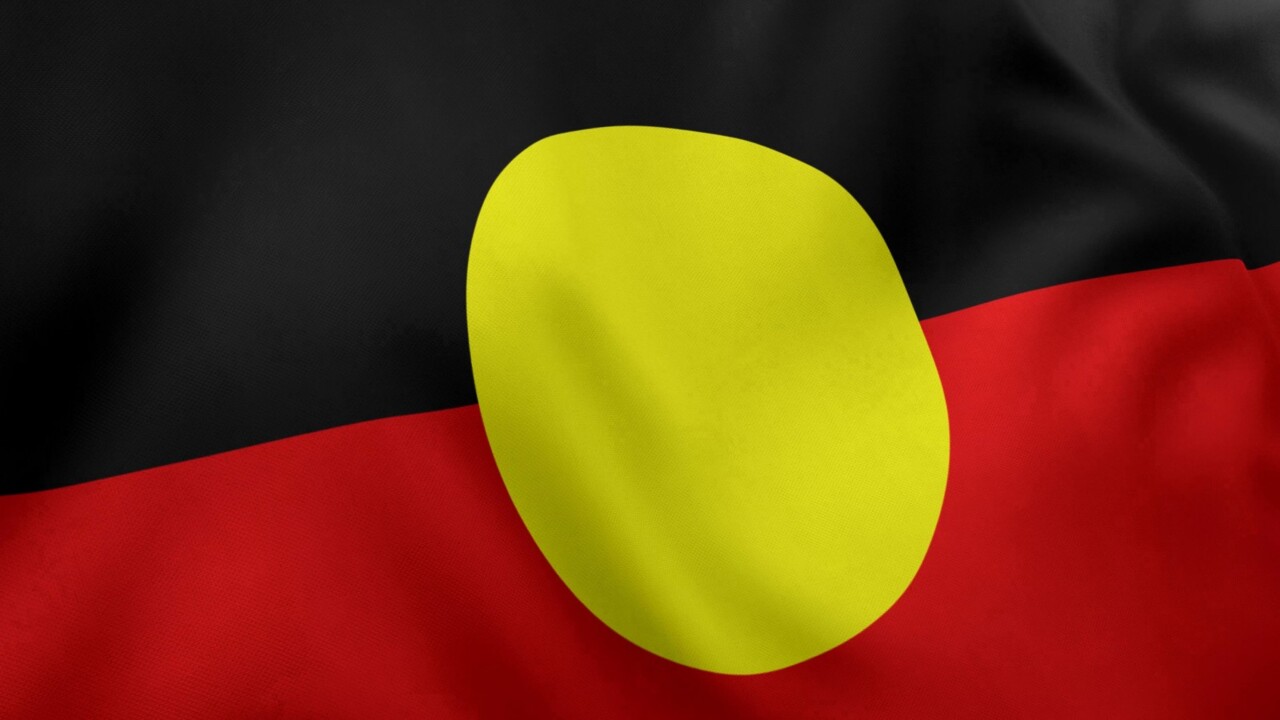
George Williams, a constitutional law expert at the University of NSW, said the voice could decide the topics on which it made representations as per the government’s proposed constitutional amendment, and this could not be altered by legislation.
The constitutional amendment says the voice may make representations to the parliament and executive government on “matters relating to Aboriginal and Torres Strait Islander peoples”.
“As a political institution with only an advisory role and dependent on government goodwill for its effectiveness, I would expect the body to respond to the government’s priority areas,” Professor Williams said.
“It would otherwise undermine its influence and effectiveness. It may, though, decide to speak on a broader range of issues than the priority areas, as would be guaranteed by the Constitution.”
Uluru Dialogue campaign director Megan Davis – who has spoken of the importance of the voice determining its own scope and advising on a broad range of issues – on Wednesday backed Ms Burney’s attempt to show the advisory body would deliver practical outcomes, like improving school attendance rates in remote communities.
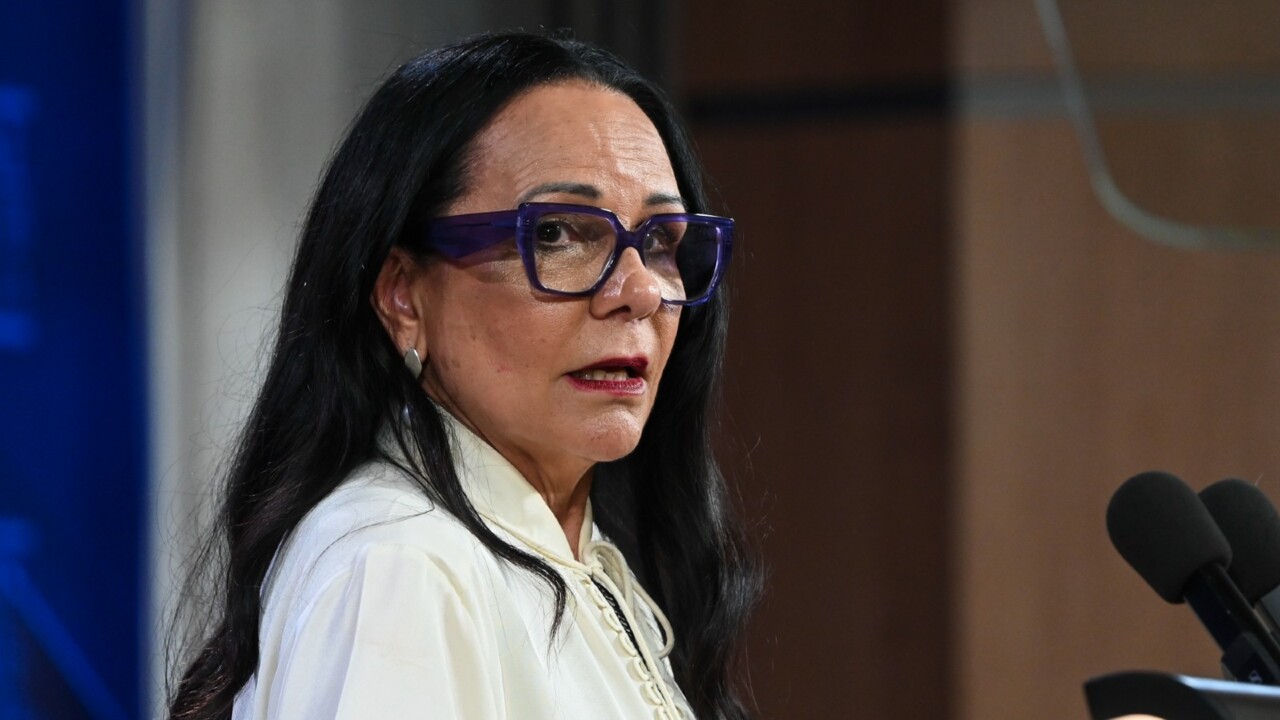
Professor Davis, one architect of the Uluru Statement from the Heart, said the voice would function like a dialogue in which mob would make representations to parliament and the executive government and the government would suggest matters for its in-tray.
“The practical examples she (Ms Burney) set out reaffirm what our community knows, and what they have asked for here, because they know what works better than bureaucrats and politicians. The status quo proves that to all Australians; things aren’t working,” Professor Davis told The Australian.
“The Uluru Statement from the Heart, as the minister quoted, also lists practical examples of the difference recognition can make. It was an invitation to Australians to hear directly from First Nations what solutions we have. We hope this speech inspires many Australians to read the statement.”
The Opposition Leader, who has been demanding more detail from the government as to how it perceives the voice working, said Ms Burney was misleading Australians and making a bad situation worse for the Yes case by pretending its remit was limited to her four priority areas.
“If the wording in the Constitution restricted it to those areas, it would be a different debate, but it doesn’t,” he said. “The design of the voice deliberately means that it doesn’t just impact on those areas, but every other area that the voice decides to have a say on. That’s the design of it and the Prime Minister has said it’d be a very brave government that said no to the voice.
“Linda Burney is trying to pretend the voice is one thing, but it’s another; Australians aren’t stupid, they get it. They know if a bad designed voice goes into the Constitution, you can’t change it.”
Uluru Dialogue member Eddie Synot said the voice would speak about what the community wanted it to speak about. “That’s the point. People complaining otherwise don’t want an Indigenous voice – they want us to be quiet, a muzzle they can control,” he said.
Marcus Stewart, who like Professor Davis is a member of the government’s referendum working group, said the voice would determine its priorities based on what it heard from the communities it served.
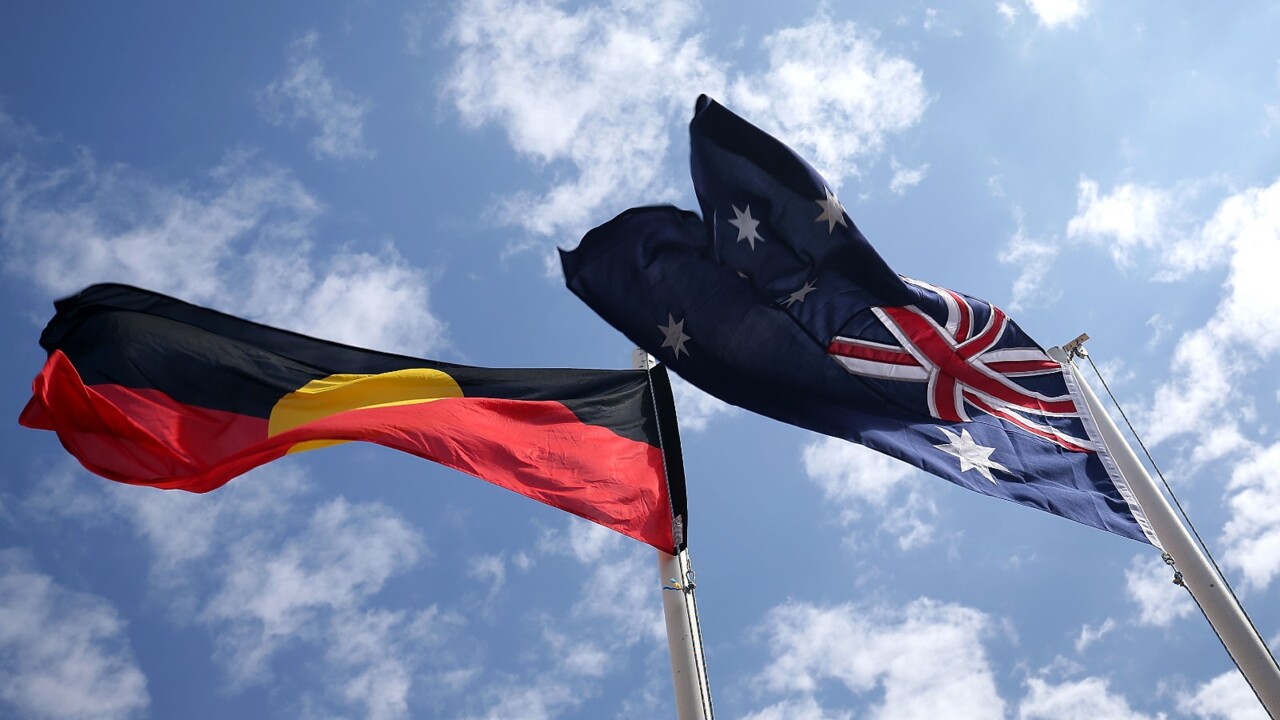
“What’s important for the Australian people to understand is the voice will make representations to the parliament and government and governments of the day will seek advice from the voice on key priority areas, which will strengthen our institutions of governance and improve the lives of Aboriginal and Torres Strait Islander people,” he said.
Ms Burney also used her address to the National Press Club to warn the media against letting the No campaign “get away with using Trump-style politics in Australia”.
“Do not let them divide us. The proposed change is constitutionally sound and legally safe,” she said.
“I know it doesn’t suit the narrative of the No campaign but the Solicitor-General, who was appointed by the now shadow attorney-general, has given clear advice that recognition through the voice is not just compatible with the system of representative and responsible government, it will enhance it.”
Leading No campaigner Jacinta Nampijinpa Price, the opposition’s Indigenous Australians spokeswoman, said Ms Burney’s “arrogant” attack on ordinary Australians who were against the constitutional change proved the referendum was about division. “If you stand against her campaign to change the Constitution to quite literally divide us by race, you’re accused of division, racism, and misinformation. How is that not divisive?”

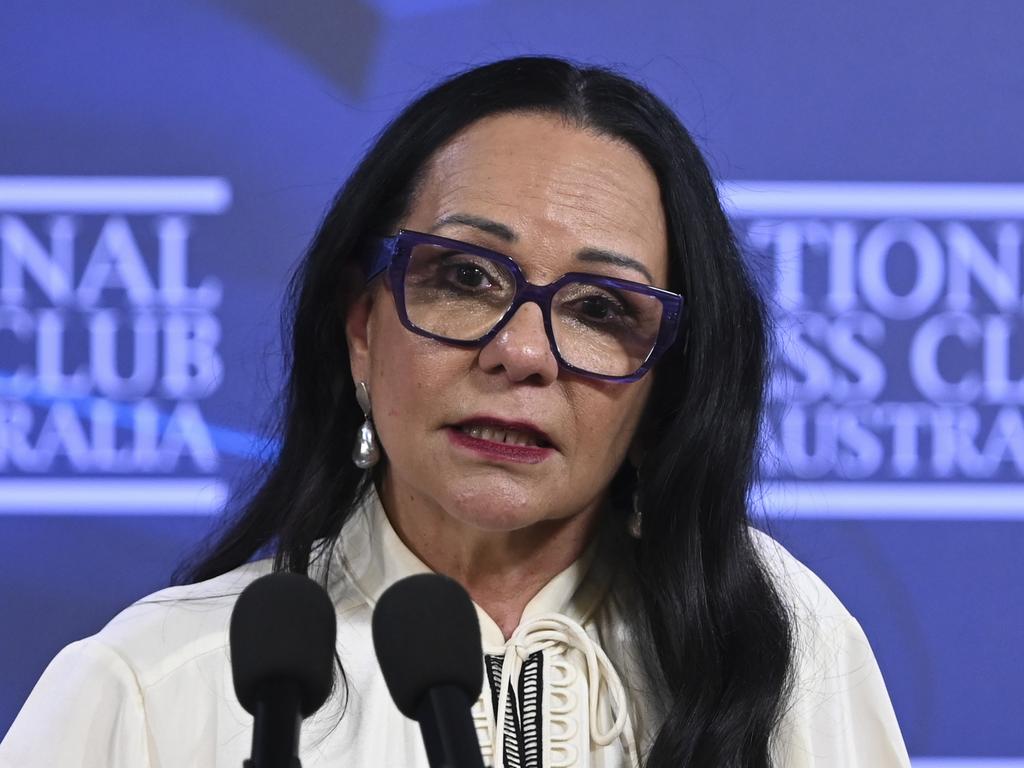
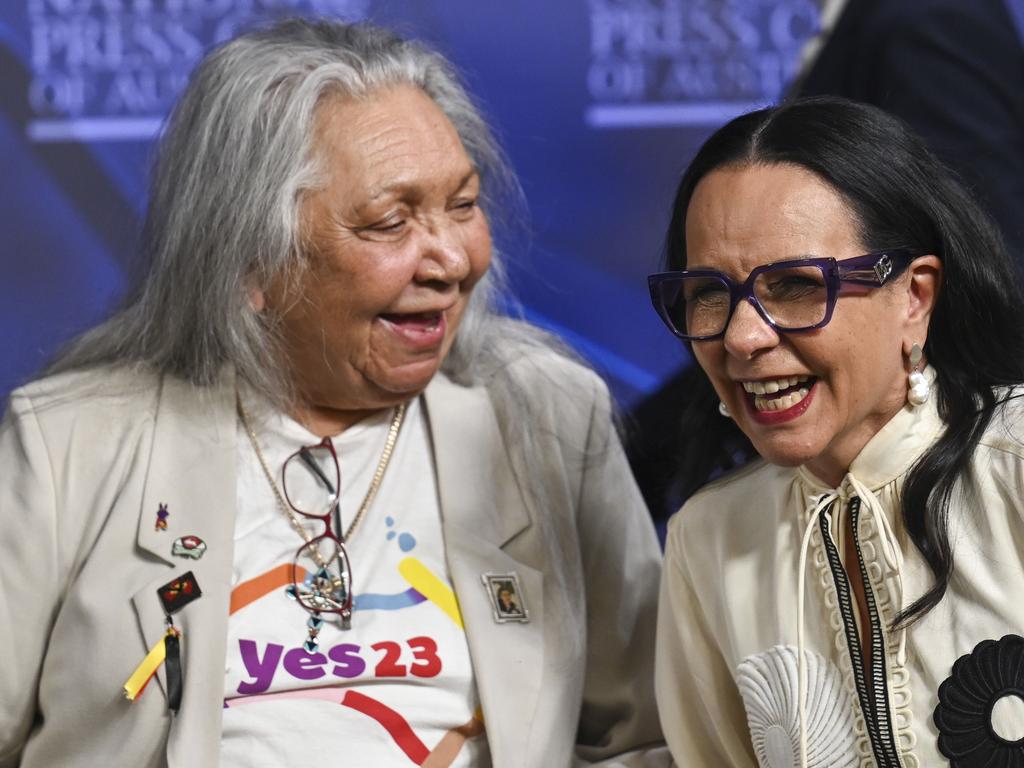
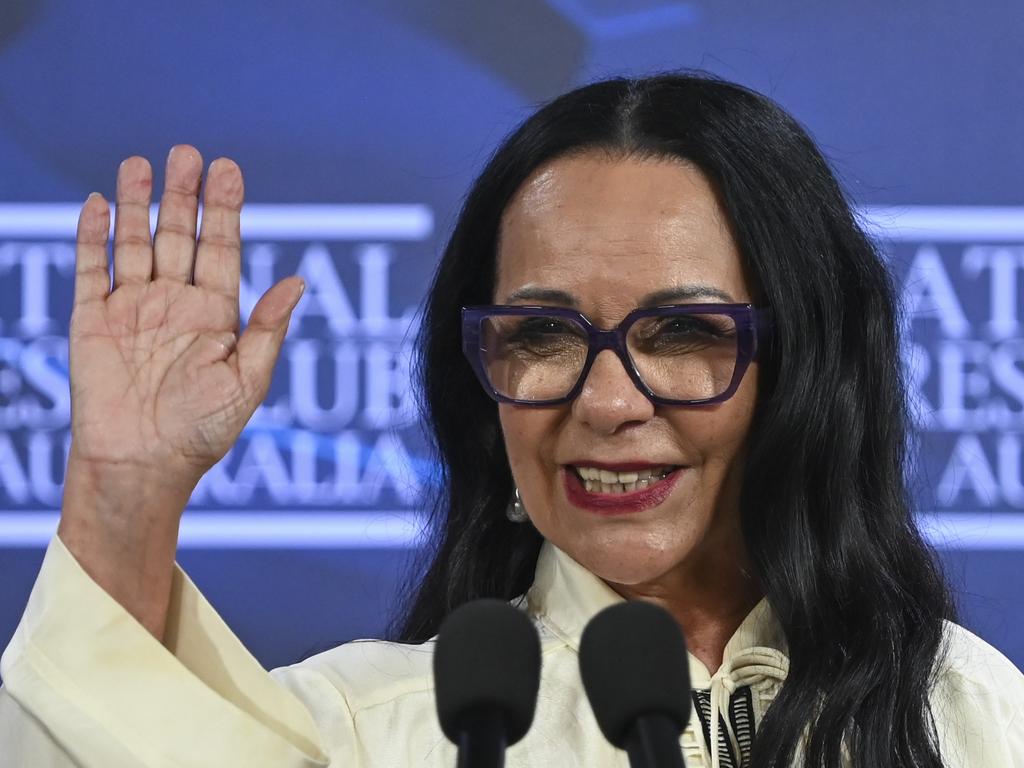
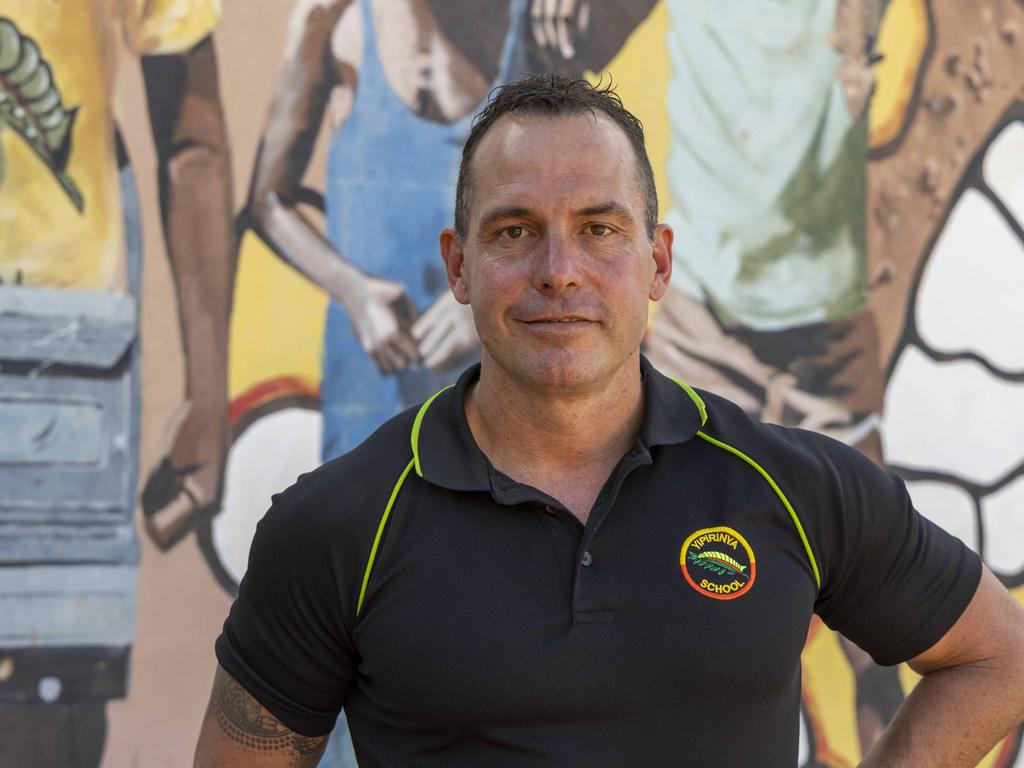
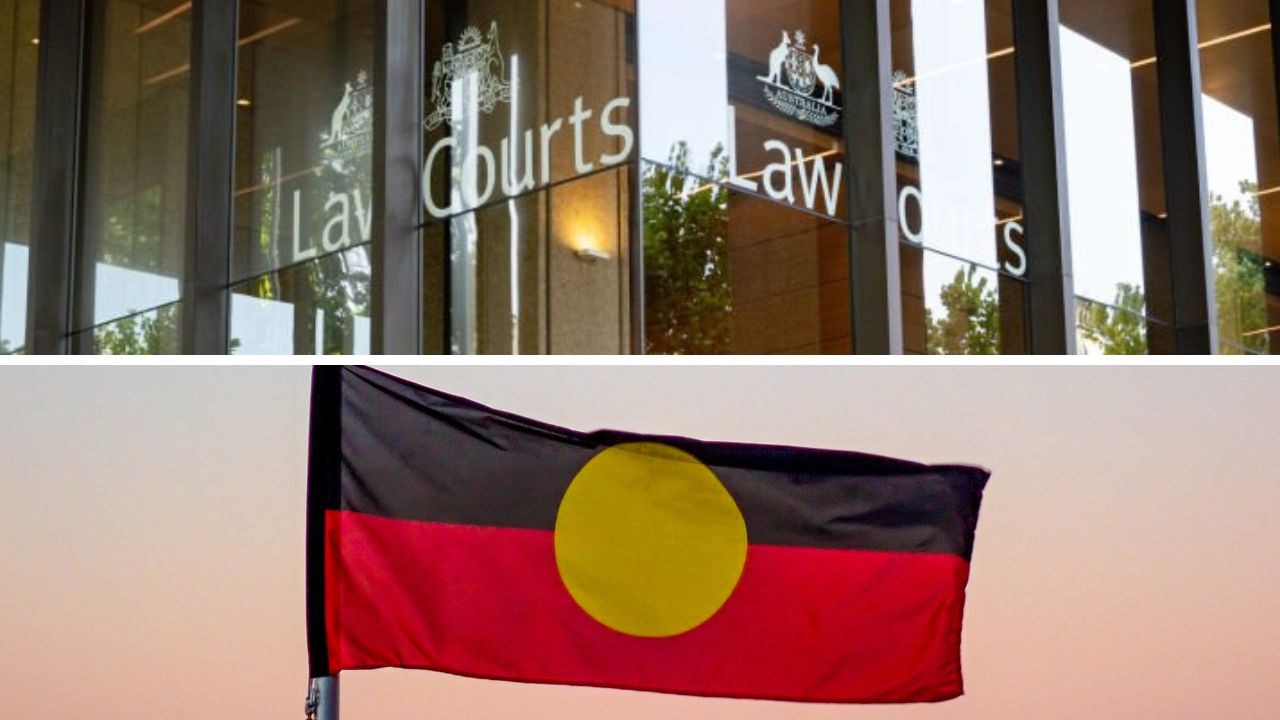
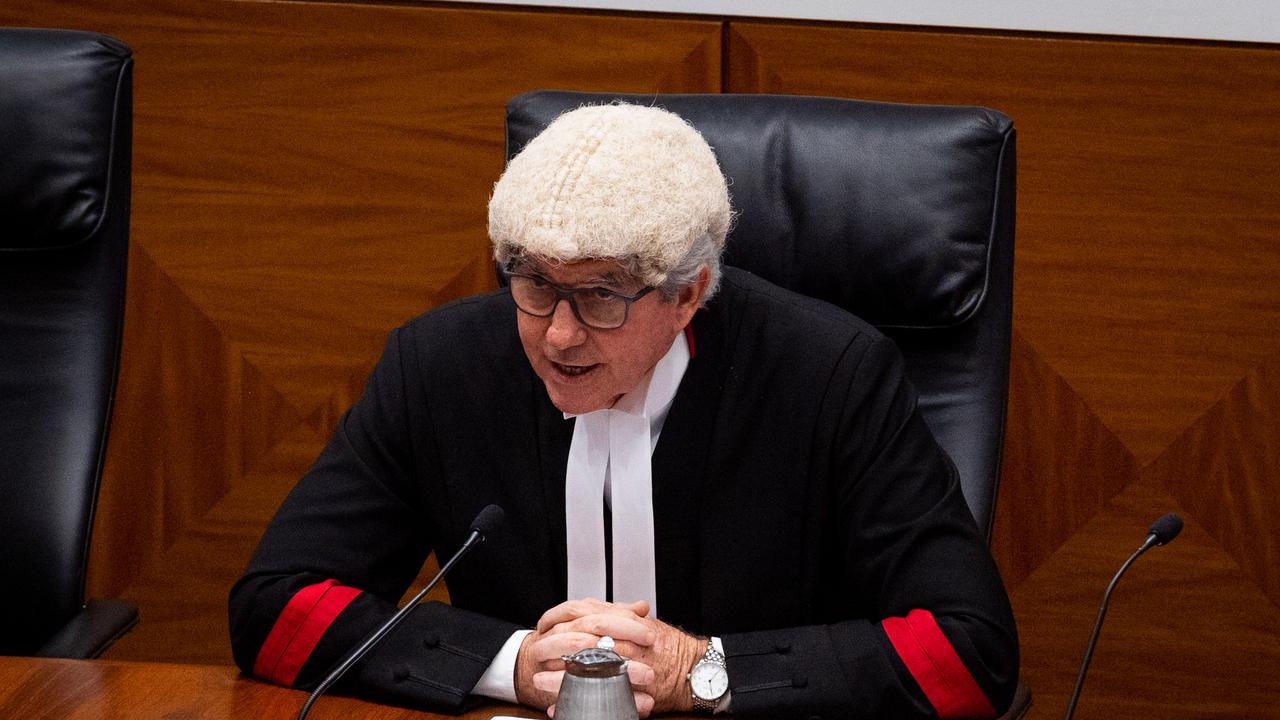
To join the conversation, please log in. Don't have an account? Register
Join the conversation, you are commenting as Logout